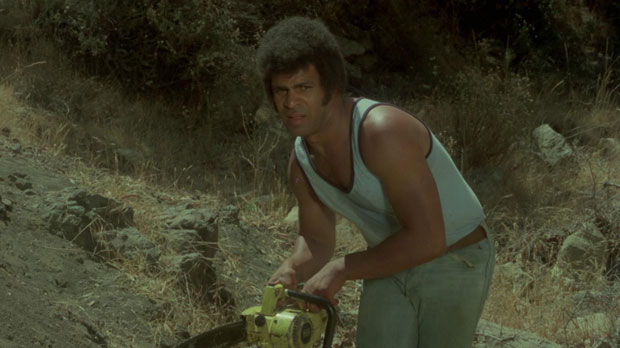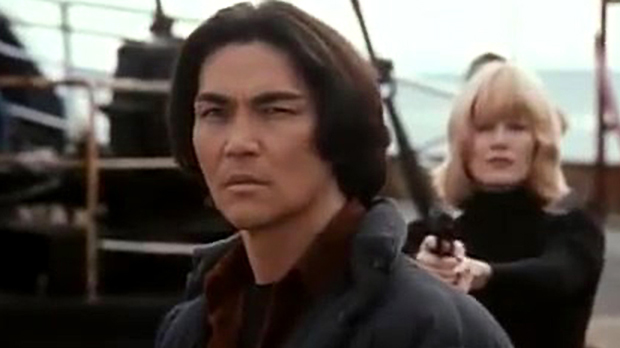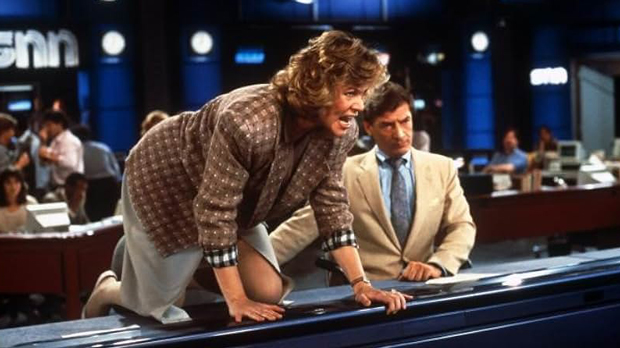 Black Shampoo (1976) Dimension Pictures/Action-Comedy RT: 85 minutes Rated R (strong sexual content, graphic nudity, language, violence) Director: Greydon Clark Screenplay: Greydon Clark and Alvin L. Fast Music: Gerald Lee Cinematography: Dean Cundey and Michael Mileham Release date: March 5, 1976 (US) Cast: John Daniels, Tanya Boyd, Skip E. Lowe, Gary Allen, Joseph Carlo (as Joe Ortiz), William Bonner (as Jack Mehoff), Bruce Kerley, Sheldon Lee (as Salvator Benissimo), Anne Gaybis, Heather Leigh (as Diana St. Clair), Fred D. Scott (as Fred Scott), Marl Pero, Kelly Beau, Ruby Williams, Helene Farber, Jacqulin Cole (as Edith Wheeler), Stephen Stucker (uncredited). Box Office: N/A
Black Shampoo (1976) Dimension Pictures/Action-Comedy RT: 85 minutes Rated R (strong sexual content, graphic nudity, language, violence) Director: Greydon Clark Screenplay: Greydon Clark and Alvin L. Fast Music: Gerald Lee Cinematography: Dean Cundey and Michael Mileham Release date: March 5, 1976 (US) Cast: John Daniels, Tanya Boyd, Skip E. Lowe, Gary Allen, Joseph Carlo (as Joe Ortiz), William Bonner (as Jack Mehoff), Bruce Kerley, Sheldon Lee (as Salvator Benissimo), Anne Gaybis, Heather Leigh (as Diana St. Clair), Fred D. Scott (as Fred Scott), Marl Pero, Kelly Beau, Ruby Williams, Helene Farber, Jacqulin Cole (as Edith Wheeler), Stephen Stucker (uncredited). Box Office: N/A
Rating: ***
The title Black Shampoo certainly would appear to indicate it’s the black version of the Warren Beatty comedy Shampoo from the previous year. Well, that and the fact that the main character is a popular hairdresser who provides more than hair care for his female clientele. That’s where the similarities end and the blaxploitation begins. There’s none of that jive about politics and societal mores. It’s been replaced by gratuitous sex and violence.
Directed by Greydon Clark (Satan’s Cheerleaders), Black Shampoo is a real hoot! It stars John Daniels (The Candy Tangerine Man) as Mr. Jonathan, the proprietor of a successful hair salon on L.A.’s Sunset Strip. Women seek him out not just for his skill as a stylist, but for his talent in another area as well. This dude is a real sex machine! If it’s female and has a pulse, he’ll do her. Rather, they all want to do him. In an early scene, the two teenage daughters of a client attempt to seduce him when he makes a house call to their mansion. Mom chases them off and immediately mounts Mr. J right there by the poolside. All the while, he never once lets go of his hairdryer. Note to Freudians, a hairdryer is just a hairdryer in this scenario.
What happens next is something I’ll bet Warren Beatty never had to deal with at his Beverly Hills salon. During the boss’ absence, a group of hoods working for the movie’s main villain, a white Mr. Big type named Mr. Wilson (Ortiz, Satan’s Cheerleaders), shows up wanting a word with the new receptionist Brenda (Boyd, Ilsa, Harem Keeper of the Oil Sheiks). It seems she used to be Mr. Wilson’s main squeeze until recently when she walked out on him. He wants her back and won’t take no for an answer. They rough up one of the salon’s employees, the flamboyantly gay Artie (talk show host Lowe), before leaving without Brenda.
This leads to a scene of Mr. J and Brenda revealing their true feelings to each other followed by a romantic montage showing them doing all the things new lovers do- e.g. walking hand-in-hand in a beautiful place, riding a paddle boat, gazing meaningfully into each other’s eyes, etc.- with the soulful “Can You Feel the Love” (by The Gerald Lee Singers) playing over the soundtrack.
Meanwhile, Wilson’s thugs return to the salon and trash the place in order to show their boss means business. By the time Mr. J gets back, his dutiful staff is already at work cleaning up the mess. This leaves him free to share a night of tender, softcore loving with Brenda. She’s gone by the time he wakes up the next morning. He drives around the city looking for her, not once stopping to consider the possibility that she went back to her ex. She did, but only to protect the one she really loves.
Upset over how things turned out, Mr. J decides to take some time to himself at his cabin in the mountains. He engages in activities like shooting pool and cutting logs with a chainsaw. Meanwhile, Brenda decides to split again, this time taking with her a ledger containing information that could destroy Wilson’s criminal empire. He can’t let that happen, so he finds out where she’s hiding (at the cabin with Mr. J, of course) and heads there to deal with them. This is where Mr. J goes full bad ass and fights to rid them of that pesky crime boss (and his barely competent henchmen) once and for all. Yes, the chainsaw figures into the finale. How did you ever guess?
I hardly know where to begin with Black Shampoo. It’s bad, but it’s great! Its greatness lies in its badness. It’s an exercise in fun-eptitude with the atrocious acting, dumb dialogue, poor editing and clumsily staged action scenes. It starts out like a softcore porn fantasy with plenty of sex and nudity packed into the first half-hour or so. Then the crime plot takes over with Mr. J taking on the mob single-handedly (unless you count the old caretaker at his cabin) after a period of brooding over the girl that got away. There’s not a lot in the way of action until the finale which is actually pretty cool.
The preceding is, of course, just a general overview of Black Shampoo. Let’s dive into it a bit deeper. It’s a low-budget job all the way. The makers apparently cut corners wherever they could. Shot in just two weeks, they didn’t even bother getting permits to film on the Strip. The lack of funds also shows in the technical aspects. Take the editing. Transitions between scenes are achieved by fading in and out of freeze-frame negative shots. Reportedly, this is because Clark forgot to shoot proper in-camera edit points. Whatever the case may be, it’s weird. The sound editing is also faulty. In one scene, the sound of breaking glass is heard a second before the thrown object actually hits the mirror. I’m sure this will get by most viewers, but I’m not most viewers, am I?
The performances in Black Shampoo range from wooden to hammy. Wooden is the perfect way to describe Daniels, an actor who shows about as much emotion as one of the logs he cuts with his trusty chainsaw. He’s likable enough, but not the most memorable of action heroes. He possesses all the usual traits. He’s good-looking and muscular. He’s tough on the bad guys and smooth with the ladies. He’s even holds progressive views concerning the two gay men in his employ. If only he had an actual personality. Then again, that never stopped Jean-Claude Van Damme or Dolph Lundgren, did it?
Boyd, while sexy as hell, is no Pam Grier. She’s easy on the eyes, but lacks the bad ass quality of the Coffy star. Also, she can’t act to save her life. Her line readings are noticeably stiff. Ortiz doesn’t do much with his character. Wilson is involved in some vaguely defined criminal business; possibly drugs, but who knows? He’s rich, ill-tempered, controlling and violent. He slaps Brenda around when she gets too nosy. That’s nothing, however, compared to what he does to poor Artie when he refuses to divulge Mr. J’s whereabouts. How does a hot curling iron up the butt sound? OUCH! That’s the only notable thing he does. Except for that, he may as well just be credited as Generic White Villain. I wouldn’t even bring up William Bonner’s lame performance as the lead henchman if not for the pseudonym under which he appears, Jack Mehoff. OMG, LOL! Say it to yourself a couple of times. It sounds like a porn actor name, no?
Hammy is an understated way to describe what Lowe and Gary Allen bring to the party. Their characters are so gay; they make the movie critics played by Damon Wayans and David Alan Grier on In Living Color look like Hans and Franz. They camp it up to 11 as the kind of super-effeminate gays you only find in movies from the pre-PC 70s. Although it goes against woke standards, these guys are a real scream. They shriek, cry and squeal “Oooh!” I think I saw a limp wrist or two as well. Artie, proving he hasn’t lost his ability to accessorize after the first assault, shows up to work with a chic scarf wrapped around his neck brace. Yeah, none of this would fly today.
Bad movies are easier to take if they’re laughable. Black Shampoo is definitely that. It deserves the RiffTrax treatment bestowed upon its blaxploitation brother The Guy from Harlem. There’s plenty to poke fun at from the opening sex scene to the very abrupt ending. Still, it’s a cool flick. Its faults are really its strengths. You have to appreciate the goofball spirit of the thing. I mean, look at the tagline: “He’s Bad… He’s Mean… He’s a Lovin’ Machine! When He’s Mad… He’s Mean…He’s a Killing Machine!” Clearly, Black Shampoo is not meant to be taken seriously. How seriously can you take a movie that features a cameo by Stephen Stucker of Airplane fame?
Greydon Clark, whose credits also include the silly sci-fi flick Without Warning, the teen T&A comedy Joysticks, the Joe Don Baker revenge actioner Final Justice and The Forbidden Dance, one of the two Lambada musical dramas that opened the same exact day (March 16, 1990), has issues with pacing and logic, but understands that his target audience will likely not care about such trivial matters. Black Shampoo is a fun albeit bumpy ride. Just shut off your brain and dig it, baby.




